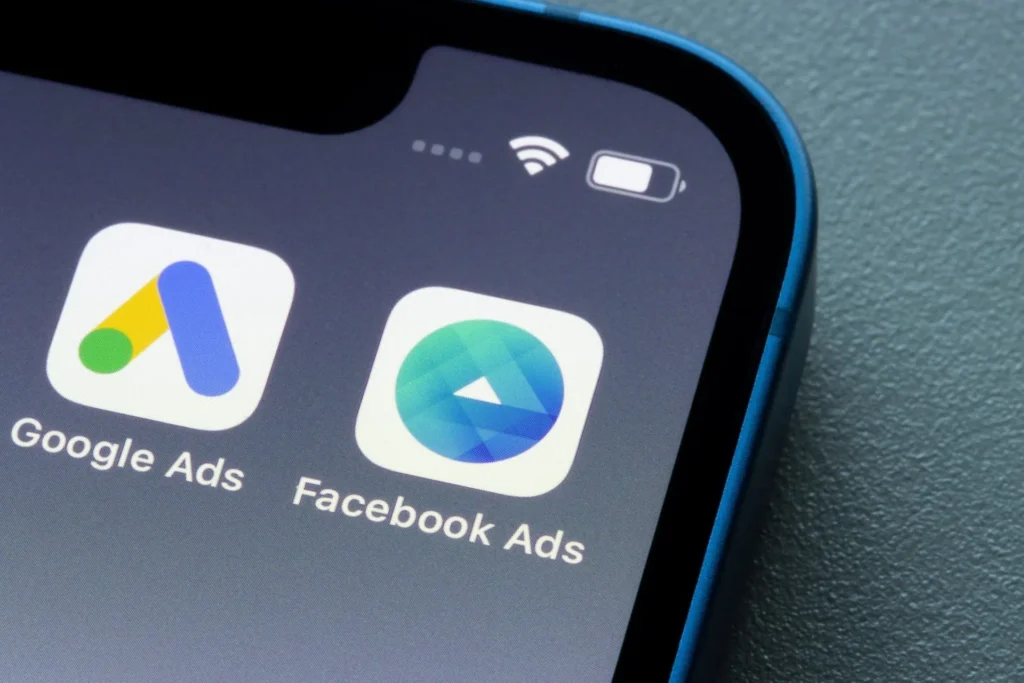1. Advertising Intent: Push vs. Pull Marketing
- Facebook Ads: These ads operate on a push marketing model. Users aren’t actively searching for a product or service; rather, ads are displayed based on interests, behaviours, and demographics. This makes Facebook Ads ideal for brand awareness and demand generation.
- Google Ads: These ads work on a pull marketing model. Users search for specific keywords, meaning they have a high intent to purchase or find information. Google Ads are excellent for capturing leads or sales when people are actively looking for a solution.
2. Audience Targeting Capabilities
- Facebook Ads: Facebook offers highly detailed audience targeting, including age, location, interests, behaviours, and even custom and lookalike audiences. This allows businesses to reach highly specific groups of users.
- Google Ads: While Google offers audience targeting through demographic and intent-based data, its main strength lies in keyword targeting. Advertisers bid on search terms to reach users actively searching for relevant topics.
3. Cost and ROI
- Facebook Ads: Typically, these have a lower cost-per-click (CPC) compared to Google Ads. However, conversion rates can vary depending on the business and industry.
- Google Ads: Google Ads tend to have a higher CPC due to the competitive nature of search bidding, but they often yield higher conversion rates due to strong user intent.
4. Ad Formats and Creative Options
- Facebook Ads: Facebook offers a variety of ad formats, including images, videos, carousel ads, stories, and lead forms. This variety allows brands to create highly engaging visual content.
- Google Ads: Google primarily offers search ads (text-based), display ads (image-based), YouTube ads (video-based), and shopping ads for e-commerce businesses.
5. Facebook Ads, or Google Ads?
- Choose Facebook Ads if:
- You want to increase brand awareness.
- You rely on engaging, visual content.
- You’re targeting a specific demographic rather than keyword-based searches.
- Choose Google Ads if:
- You want to capture high-intent traffic.
- Your business depends on search-based demand.
- You need immediate conversions rather than awareness.
Conclusion
Both ads offer unique advantages. If you want to build brand awareness and engage users through visuals, Facebook is a strong choice. If you’re looking to capture high-intent customers through search, Google Ads might be the better option. In many cases, a combination of both platforms will yield the best results for your business.








